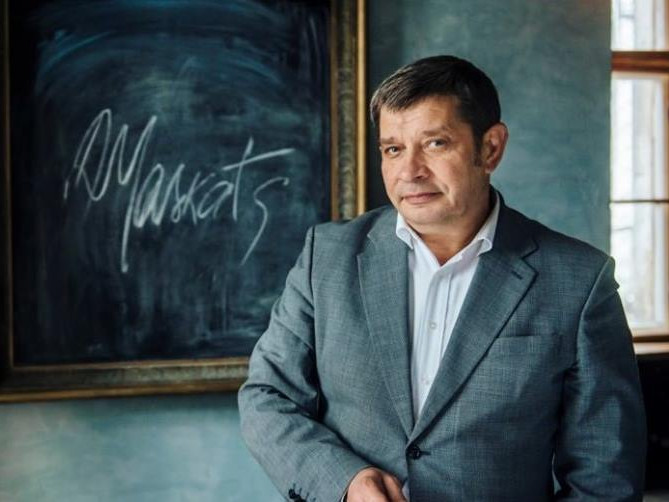
Arturs Maskats
(20.12.1957 )
“Every performance, every new work of art and creative expression is a leap into the unknown. If that is not the case, I fall into a routine and copy what I have already created. I do not think that something falls from the sky and the composer simply catches it. If I am working on a specific work, I am deeply involved in it. From there, the road to illumination and how to proceed is made clear.”
Arturs Maskats
Arturs Maskats was born on December 20th, 1957 in Valmiera. He studied at the Jāzeps Mediņš Music School, where among his teachers were Jānis Līcītis (harmony) and Marija Mediņa (the musical form, instrumentation) – a representative of a notable family of Latvian composers and the spiritual motivator of Arturs Maskats’s further progress. He finished the composition class with Valentīns Utkins (1982) at the Latvian State Conservatory, and, during his years of study, he received the top award at the All Nations Young Composer Festival (1981) in Yerevan, Armenia.
The focus of the composer’s creative life is the theatre. As the Music Director at the Rainis Dailes Theatre (1982–1997) he composed original music for almost one hundred productions, among them the distinguished Reawakening Period production Mūžības skartie (Those Touched by Eternity) (1987) by Aleksandrs Čaks, which poet Jānis Peters called that era’s purification. Arturs Maskats composed for other theatres’ productions too.
He was the chairman of the executive board of the Latvian Composer’s Union (1993–1996), and the artistic director of the Latvian National Opera (1996-2013). As of November 2013, he is the programme director of State LTD Latvijas Koncerti. He is one of the creators of the Cēsis Art Festival.
Arturs Maskats has been awarded the Lielā mūzikas balva (Great Music Award) in 1996, 2001, 2002 and 2011. His work Tango was performed at the final of the 3rd international symphonic composition competition Masterprize in London (2003).
An intensive musical thinking and expressiveness of thought characterize the works of Arturs Maskats. This also has required choosing an appropriate form of expression. These musically created impulses are not infrequently drawn from a particular sensitiveness (Ojārs Vācietis) or in the lyrically noblesse word. Since his youth, he has been captivated by French poetry and Latin culture (Paul Verlaine, Michelangelo, Pier Paolo Pasolini). He also draws from the world of dance. In his work Salve Regina, notable in the musical text is the expressive sonic mildness of the cello, the performance’s carriage at times behind the fingerboard. At the same time the music is advisedly organized. The rhythm of the gold section can be discerned in the compositional form of his Concerto grosso. It will resolve in the concerto’s intensified emotional space. One of the composer’s works – Tango for symphony orchestra – seems to vibrate on a hot pole. One is able to speak about a contemporary romantic interpretation, especially in the dramaturgical aspect, in the music of Arturs Maskats.
Lolita Fūrmane © LMIC
